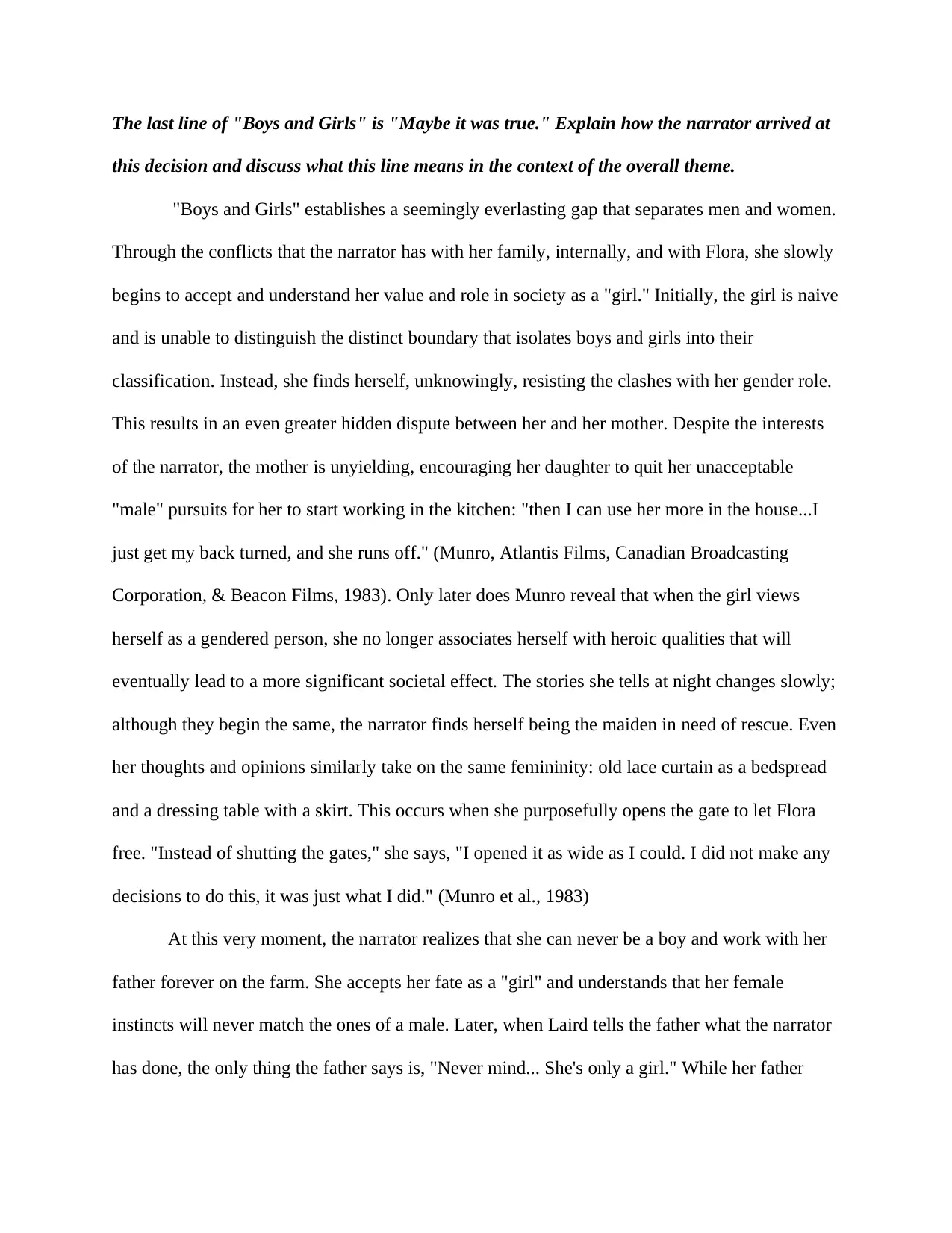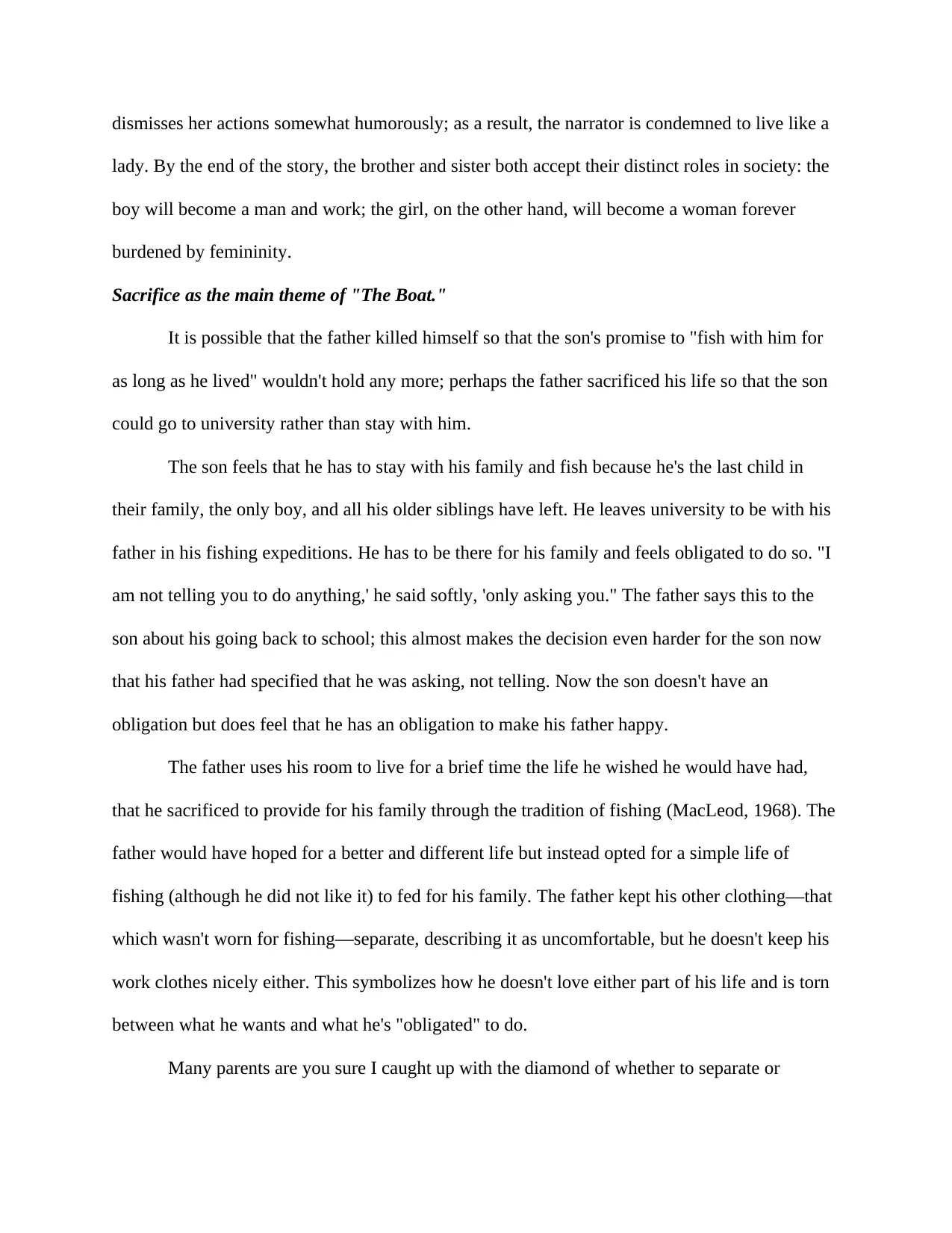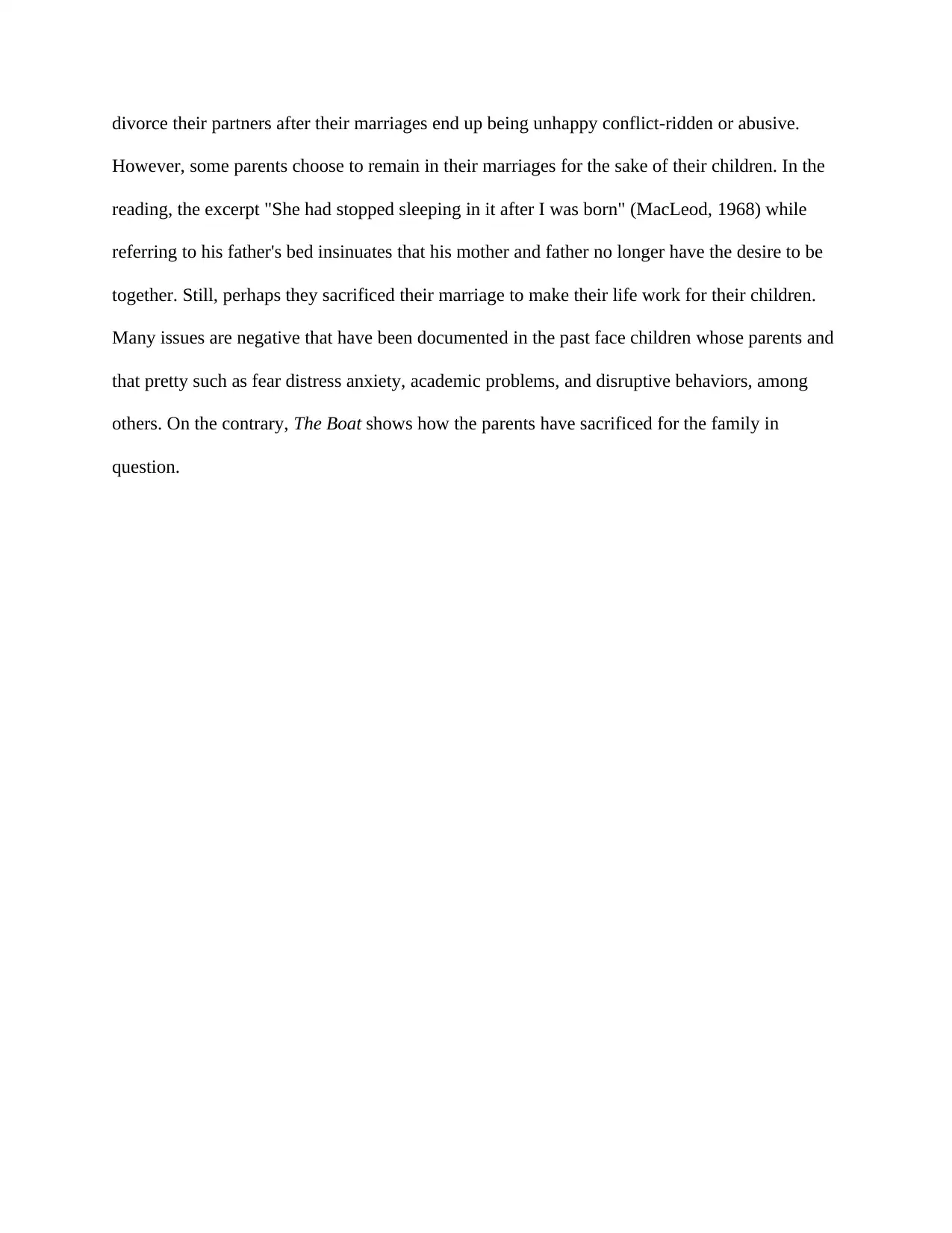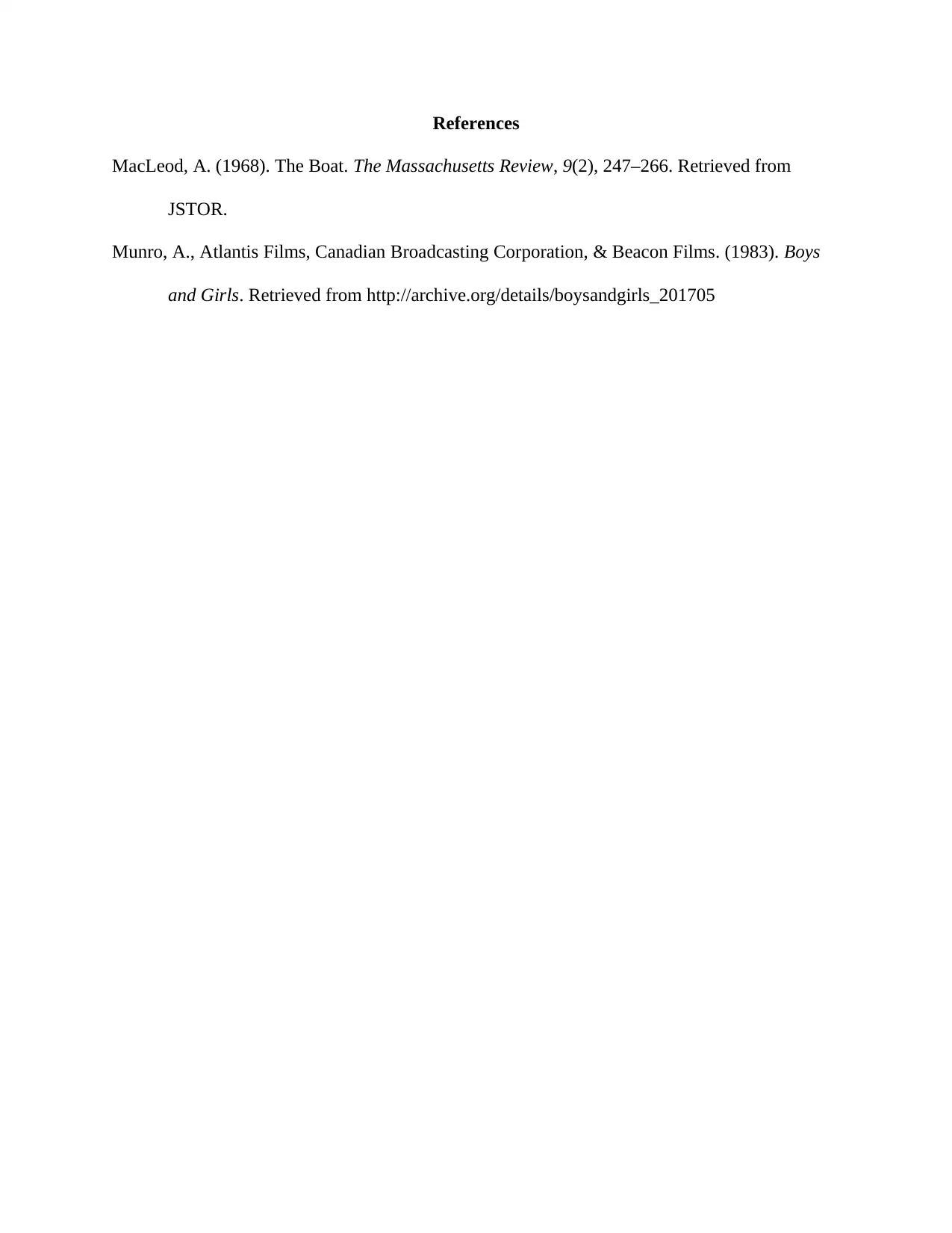English 1205 Quiz 3: Analysis of 'Boys and Girls' and 'The Boat'
VerifiedAdded on 2022/08/31
|4
|1065
|27
Quiz and Exam
AI Summary
This assignment analyzes two short stories, "Boys and Girls" by Alice Munro and "The Boat" by Alistair MacLeod, focusing on the themes of gender roles and sacrifice. In "Boys and Girls," the narrator grapples with societal expectations and her evolving understanding of her identity as a girl, ultimately accepting her assigned role. The analysis examines how the narrator arrives at the conclusion expressed in the final line, "Maybe it was true." The assignment also explores the theme of sacrifice in "The Boat," particularly through the son's commitment to his family and the potential sacrifices made by his father. It references specific textual evidence to support the argument that sacrifice is the central theme of the story. The analysis considers the characters' internal conflicts, societal pressures, and the impact of their choices, providing a comprehensive understanding of the stories' central themes and the authors' narrative techniques.
1 out of 4








![[object Object]](/_next/static/media/star-bottom.7253800d.svg)